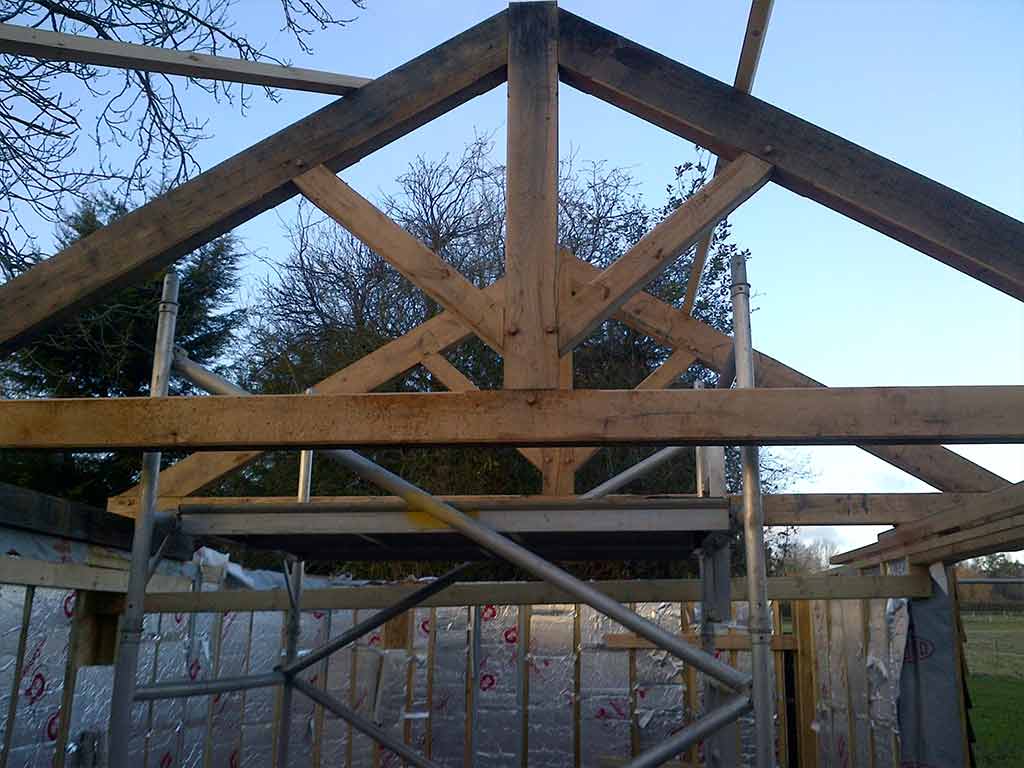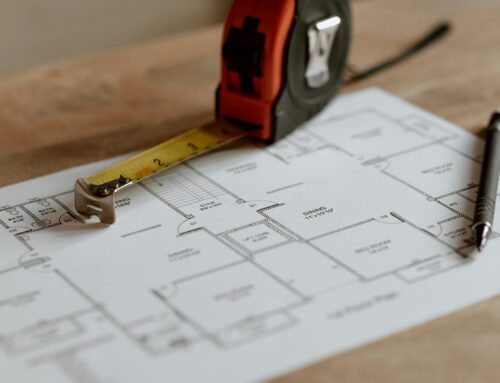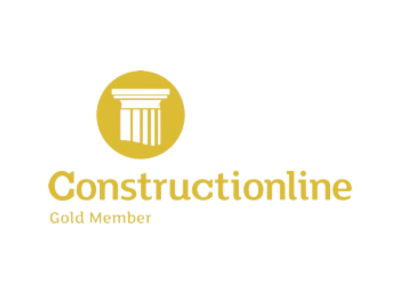The role of an experienced quantity surveyor is vital in ensuring the success and efficiency of construction projects. From the early planning stages to project completion, their expertise plays a key part in controlling costs, managing resources, and minimising risks. Whether you’re overseeing a small build or a large-scale development, a quantity surveyor ensures that every penny is spent wisely and every stage runs smoothly.
One of the most significant contributions of an experienced quantity surveyor is their ability to manage budgets effectively. They calculate the costs of materials, labour, and equipment, providing detailed estimates that help project managers make informed decisions. This not only prevents overspending but also identifies opportunities for savings, ensuring the project stays financially on track.
Another critical aspect of their role is managing contracts and negotiations. Quantity surveyors are skilled in handling contractor agreements, ensuring that all parties meet their obligations while adhering to the project’s budget and timeline. Their oversight reduces disputes and keeps the project moving forward.
In this article, we at Pure Construction will explore how the role of an experienced quantity surveyor boosts project efficiency. From understanding their core responsibilities to uncovering the tools they use and the risks they mitigate, we’ll demonstrate why their expertise is indispensable. By the end, you’ll understand how a skilled quantity surveyor can transform the way your construction projects are managed, saving time, reducing costs, and delivering exceptional results.
What Does A Quantity Surveyor Do?
- Advising on the potential of a site and working out what a client can afford to build, often termed ‘feasibility’.
- Presenting detailed information on the cost of particular elements of work on a periodic basis to enable payment for those works carried out to date. This process is known as ‘valuations’.
- Organising the division of a project into its component work packages, then awarding these work packages to smaller, more specialised construction companies (known as subcontractors) and, in that process, finding out who offers the best deal.
- Dealing with contractual and legal matters.
- Managing costs to make sure that the initial budget isn’t exceeded.
- Arranging staff payments and, at the end of a job, settling the final accounts.
- Acting as financial advisors and monitoring progress for the client.
Key Responsibilities Of An Experienced Quantity Surveyor
The role of an experienced quantity surveyor encompasses a wide range of responsibilities that are essential for ensuring the success and efficiency of any construction project. Their work involves much more than just managing costs—they oversee multiple aspects of the project to keep everything running smoothly.
- Budgeting and Cost Estimation: An experienced quantity surveyor begins by preparing detailed cost estimates based on the project’s requirements. They assess the price of materials, labour, equipment, and other factors to create a realistic budget. By identifying potential cost-saving opportunities, they ensure the project remains financially viable.
- Contract Management: Quantity surveyors are responsible for drafting, evaluating, and managing contracts between stakeholders, including contractors, suppliers, and clients. They ensure that agreements are fair and clear, reducing the likelihood of disputes. Their knowledge of legal and regulatory requirements helps protect all parties involved.
- Resource Allocation: Efficient resource management is critical for project success. Quantity surveyors analyse how materials, equipment, and labour are used throughout the project, ensuring optimal allocation. This prevents wastage, delays, and unnecessary expenses.
- Cost Monitoring and Reporting: Throughout the project, a quantity surveyor tracks expenses and compares them to the initial budget. They provide regular reports to stakeholders, highlighting any deviations and suggesting corrective actions. This transparency helps keep the project on track financially.
- Risk Management: Construction projects often face unexpected challenges, such as fluctuating material prices or delays. Quantity surveyors identify potential risks early and develop strategies to mitigate them. Their proactive approach minimises disruptions and ensures that the project progresses as planned.
- Quality Assurance: Ensuring that materials and workmanship meet quality standards is another important responsibility. Quantity surveyors oversee inspections and audits to confirm that the project adheres to specifications, safeguarding its durability and safety.
By managing these responsibilities, a experienced quantity surveyor ensures that projects are completed on time, within budget, and to the highest standards. Their expertise is invaluable for navigating the complexities of construction projects effectively.

How The Role Of An Experienced Quantity Surveyor Saves Time And Money
An experienced quantity surveyor is instrumental in saving both time and money during construction projects. Their expertise ensures that resources are used efficiently and potential issues are addressed proactively, minimising delays and unexpected expenses.
- Accurate Cost Planning: One of the key ways quantity surveyors save money is through precise cost planning. By preparing detailed budgets at the start of a project, they provide an accurate forecast of expenses. This eliminates guesswork and helps avoid overspending on materials, labour, or equipment. Their attention to detail ensures that every aspect of the project is accounted for, preventing financial surprises later.
- Effective Contract Negotiation: Quantity surveyors excel in negotiating contracts with suppliers, contractors, and other stakeholders. Their ability to secure competitive rates and favourable terms directly impacts the project’s overall cost. By ensuring contracts are clear and fair, they reduce the risk of disputes that could delay progress.
- Preventing Delays: Delays in construction projects can be costly. An experienced quantity surveyor mitigates this risk by creating detailed schedules and monitoring progress against set milestones. If delays arise, they quickly identify the cause and implement corrective measures to get the project back on track.
- Resource Optimisation: Efficient use of resources is another area where quantity surveyors add value. They assess how materials, labour, and equipment are allocated, ensuring nothing goes to waste. This optimised approach reduces unnecessary expenses and speeds up project completion.
- Risk Mitigation: Construction projects are prone to unexpected challenges, such as fluctuating material costs or weather disruptions. Quantity surveyors identify these risks early and develop contingency plans to manage them. Their proactive approach helps avoid costly disruptions.
- Regular Financial Reporting: Throughout the project, quantity surveyors provide detailed financial reports, helping stakeholders stay informed about costs. This transparency ensures better decision-making and keeps spending under control.
By focusing on these areas, a quantity surveyor streamlines construction projects, saving valuable time and money while ensuring a smooth and efficient process.
Tools And Techniques Used By Experienced Quantity Surveyors
The role of an experienced quantity surveyor relies heavily on modern tools and proven techniques to enhance efficiency and accuracy. By leveraging these resources, quantity surveyors ensure smooth project management, cost control, and successful delivery.
- Cost Estimation Software: Quantity surveyors use advanced cost estimation tools like CostX, Candy, or PlanSwift to prepare detailed budgets and forecasts. These platforms allow them to input project data, calculate costs accurately, and generate comprehensive reports. This reduces manual errors and speeds up the estimation process.
- Building Information Modelling (BIM): BIM is a game-changer in the construction industry. It creates a shared digital representation of a building, enabling all stakeholders to collaborate seamlessly. Quantity surveyors use BIM to visualise designs, estimate quantities, and detect potential clashes early, saving time and reducing waste.
- Project Management Software: Tools like Primavera P6 and MS Project help quantity surveyors manage schedules, monitor progress, and allocate resources effectively. These tools ensure that timelines are met and resources are optimally utilised, avoiding delays and cost overruns.
- Tender Analysis Techniques: When evaluating contractor bids, quantity surveyors apply tender analysis methods to assess value for money. By comparing bids in detail, they ensure the project gets the best services and materials within the budget.
- Risk Assessment Frameworks: To mitigate potential issues, experienced quantity surveyors use structured risk assessment techniques. Tools like Monte Carlo simulations or SWOT analysis help them identify risks, evaluate their impact, and develop contingency plans to minimise disruptions.
- Quality Assurance Checklists: Ensuring quality is another critical aspect of the role. Quantity surveyors employ checklists and inspection frameworks to confirm that materials and workmanship meet the required standards. This guarantees that the project is built to last and avoids costly rework.
- Collaborative Platforms: Platforms like Procore and Aconex enable real-time communication and document sharing among stakeholders. This fosters collaboration, keeps everyone informed, and ensures the project runs smoothly.
By adopting these tools and techniques, a quantity surveyor is made more efficient, ensuring that projects are completed on time, within budget, and to the highest standards.

The Role Of An Experienced Quantity Surveyor In Risk Management
Risk management is an important aspect of an experienced quantity surveyor, as construction projects often face unexpected challenges. From fluctuating material costs to delays and unforeseen site conditions, managing risks effectively ensures projects remain on track and within budget.
1. Identifying Potential Risks: An experienced quantity surveyor begins by thoroughly assessing the project to identify potential risks. This includes analysing market conditions, reviewing project designs, and evaluating contracts for any ambiguities that could lead to disputes. By pinpointing risks early, they prepare the project for potential challenges.
2. Preparing Contingency Plans: Once risks are identified, quantity surveyors develop contingency plans to address them. For example, they may recommend alternative suppliers to mitigate the risk of material shortages or suggest cost buffers to account for price fluctuations. These plans help reduce the impact of risks if they materialise.
3. Monitoring Progress and Costs: Throughout the project, quantity surveyors monitor progress closely to identify emerging risks. They track costs against the budget, ensuring that any discrepancies are addressed promptly. This proactive approach minimises delays and prevents small issues from escalating into major problems.
4. Managing Contractual Risks: Construction projects involve multiple parties, each with contractual obligations. Quantity surveyors review and manage these contracts to ensure all parties fulfil their responsibilities. They also handle disputes effectively, minimising the risk of legal action that could delay or derail the project.
5. Adapting to Changing Circumstances: Construction projects often face changing conditions, such as weather disruptions or regulatory updates. Experienced quantity surveyors adapt plans as needed, ensuring that the project remains compliant and on schedule.
6. Communicating with Stakeholders: Clear communication is key to effective risk management. Quantity surveyors keep all stakeholders informed about potential risks and their mitigation strategies, ensuring that everyone is aligned.
By integrating risk management into every phase of the project, the role of an experienced quantity surveyor helps ensure smooth execution and successful outcomes. Their expertise minimises disruptions and allows the team to focus on delivering a high-quality result.
Why An Experienced Quantity Surveyor Is Key To Project Efficiency
At the heart of every successful construction project is the role of an experienced quantity surveyor. Their ability to manage costs, streamline processes, and mitigate risks makes them an indispensable asset for ensuring projects are delivered on time, within budget, and to the highest standards.
From precise cost planning and effective contract management to identifying risks and implementing innovative tools, quantity surveyors bring a level of expertise that transforms complex projects into seamless operations. Their involvement not only reduces financial waste but also fosters collaboration among stakeholders, ensuring that everyone works towards the same goal.
At Pure Construction, we understand the value that a skilled quantity surveyor brings to every project. Our team is committed to providing tailored solutions that meet your unique requirements, ensuring your construction process is as efficient and cost-effective as possible. Whether it’s budgeting, risk management, or overseeing quality standards, we are here to guide you through every step of your project.
If you’re looking to enhance efficiency and gain peace of mind for your next project, let us help. With our expertise in the role of an experienced quantity surveyor, we’ll ensure your vision is executed flawlessly. Contact us today to discuss your project needs and discover how we can help you achieve outstanding results.








